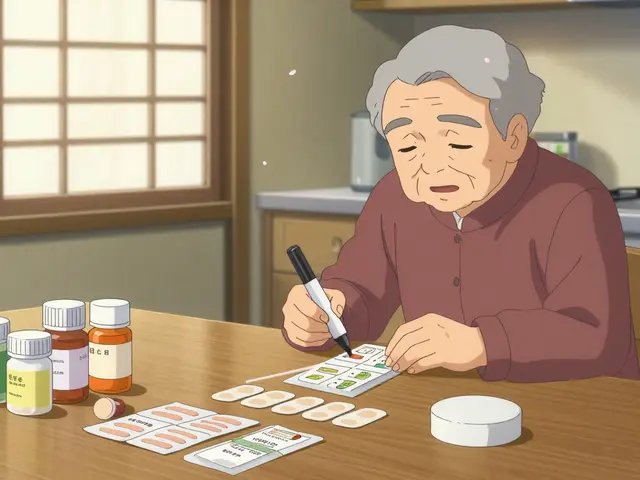Psoriasis Treatment: Effective Options, Common Mistakes, and What Actually Works
When you have psoriasis, a chronic autoimmune skin condition that causes red, scaly patches. Also known as plaque psoriasis, it’s not just a cosmetic issue—it can hurt, itch, and affect your daily life. Many people try everything from home remedies to over-the-counter creams, only to feel frustrated when nothing sticks. The truth? Not all psoriasis treatment, the range of medical and non-medical approaches used to reduce symptoms and slow flare-ups is created equal. Some work for a while, then stop. Others are backed by solid science—and you deserve to know which ones they are.
Topical treatments, creams and ointments applied directly to the skin like corticosteroids, vitamin D analogs, and coal tar are often the first step. They’re affordable, easy to use, and help calm mild to moderate flare-ups. But using them wrong—like applying too little or stopping too soon—can make them seem useless. Then there’s phototherapy, controlled exposure to ultraviolet light under medical supervision. It’s not a spa treatment. It’s a proven method that slows skin cell growth and reduces inflammation, especially when creams alone aren’t enough. Many patients see real improvement after just a few sessions, but it requires consistency and access to a clinic.
For moderate to severe cases, biologics, injectable or infused drugs that target specific parts of the immune system are game-changers. Unlike older systemic drugs that suppress your whole immune system, biologics are precise. They stop the exact signals causing skin cells to overproduce. Drugs like adalimumab, secukinumab, and ustekinumab have helped thousands regain control of their skin. But they’re not cheap, and they require monitoring. Still, for people who’ve tried everything else, they can mean the difference between hiding under long sleeves and living normally.
What’s missing from most advice? The fact that psoriasis treatment isn’t one-size-fits-all. What works for your neighbor might do nothing for you. Your triggers—stress, weather, alcohol, certain meds—matter just as much as the treatment itself. And yes, some treatments you’ll see advertised online? They’re scams. No cream can cure psoriasis overnight. Real progress takes time, patience, and the right guidance.
Below, you’ll find real comparisons and deep dives into the treatments people actually use. From how to use topical steroids without thinning your skin, to whether light therapy is worth the drive, to what biologics cost and how they’re given—you’ll see what’s backed by data, not marketing. No hype. Just what works, what doesn’t, and why.
How Calcipotriol Works With Your Immune System to Treat Psoriasis
Calcipotriol is a vitamin D analog that helps control psoriasis by calming overactive immune cells in the skin. It reduces inflammation, slows skin cell growth, and avoids the side effects of steroids.






